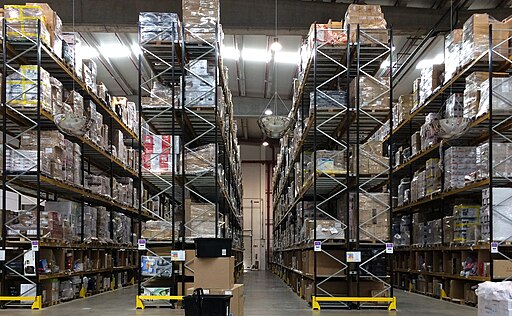This post is the continuation of my last post. We were discussing — superficially, of course, as one is forced to do in this blogging environment, but I digress — the difficulty that the online giant Amazon has in understanding very complicated concepts such as ‘social responsibility’ or ‘decent working conditions’. Today we look at the environmental impact of online shopping, more specifically the costly ‘free return’ and ‘express shipping’ policies. To be honest, what we’re going to highlight here applies to any online shop offering these services, but it’s always nice to put the nail in the coffin of a giant.
From what I’ve been able to glean from the web, if you don’t ask for same-day delivery and if you don’t order 5 pairs of shoes to return 4, as many do, it’s not clear whether the environmental footprint of shopping online is more important than visiting a physical store. But I think that online shopping is easy to beat: if you choose a shop that sells local products and if you get there by bike, you’ve probably already won. And you will have had some exercise.
According to this article, Amazon’s average return rate was around 21% in 2021. This is obviously much more than what happens in a physical shop where you can go, try on different pairs of shoes on the spot and choose the one that suits you best. You have no reason to return a product, except in the case of an error. Amazon still offers a free return service to this day because it’s good for business. What happens when you return the 4 pairs of shoes you don’t want? Re-packaging them would be too expensive. They will probably be thrown onto a pallet, jumbled with a bunch of other disparate products, the pallet will be sold by weight, and loaded into a container en route to a distant destination. At the other end, what can be salvaged will be resold and the rest thrown into the landfill or burnt. That’s 5.8 billion pounds (2,6 × 109 kg) of landfill waste each year, just for the United States.

Did you click on ‘express delivery’? Yes, because as a typical customer you want to be treated like royalty. So your parcel, if it comes from far away, will travel by plane, a terrible solution for CO2 emissions. Once at the Amazon warehouse, it is loaded onto the first truck. The truck will take the road even if it’s half empty, because it has to leave at a fixed time so as to speed up the process. If it gets stuck in traffic, because you live in a large city, you might receive your parcel late, and you will complain… Repeat this scenario dozens of times a day, in every major city in the world, every day of the week.
This is all very complicated. Stopping at nothing, to help you decide whether you should purchase your next item online or not, I have designed for you a decision flow chart, easy to follow step by step. You’re welcome:
| Step 1: don’t shop online. |
In case you find this topic super exciting, here are two videos to watch in your spare time:
How some online shopping habits are terrible for the environment (CBC News, 3:34)
Dit gebeurt er met je retourzending (What happens to your return, in Dutch, VPRO, 23:05)



I must admit that I did not know how demanding the Amazon delivery process is in so many ways until I read your blog post (shamefully enough I think I just never thought about this topic too much in-depth, which is certainly an issue). Thank you for writing about this and making me reconsider some of my choices. I have never used Amazon a lot, but I do have to say that when I received a free delivery through Amazon once or twice in my life, my initial thought was “Yayy, I don’t have to pay and I will get my package in a couple of days“ instead of actually thinking about how many people are included in the whole process of getting my new bed lamp, book, or whatever it was that I decided to order, to my front door. This is definitely a topic that should be talked about more and that people should be further educated about, just because the environmental footprint of this online shopping (and the well-being of the workers included in the process) is certainly not something that should be taken lightly.